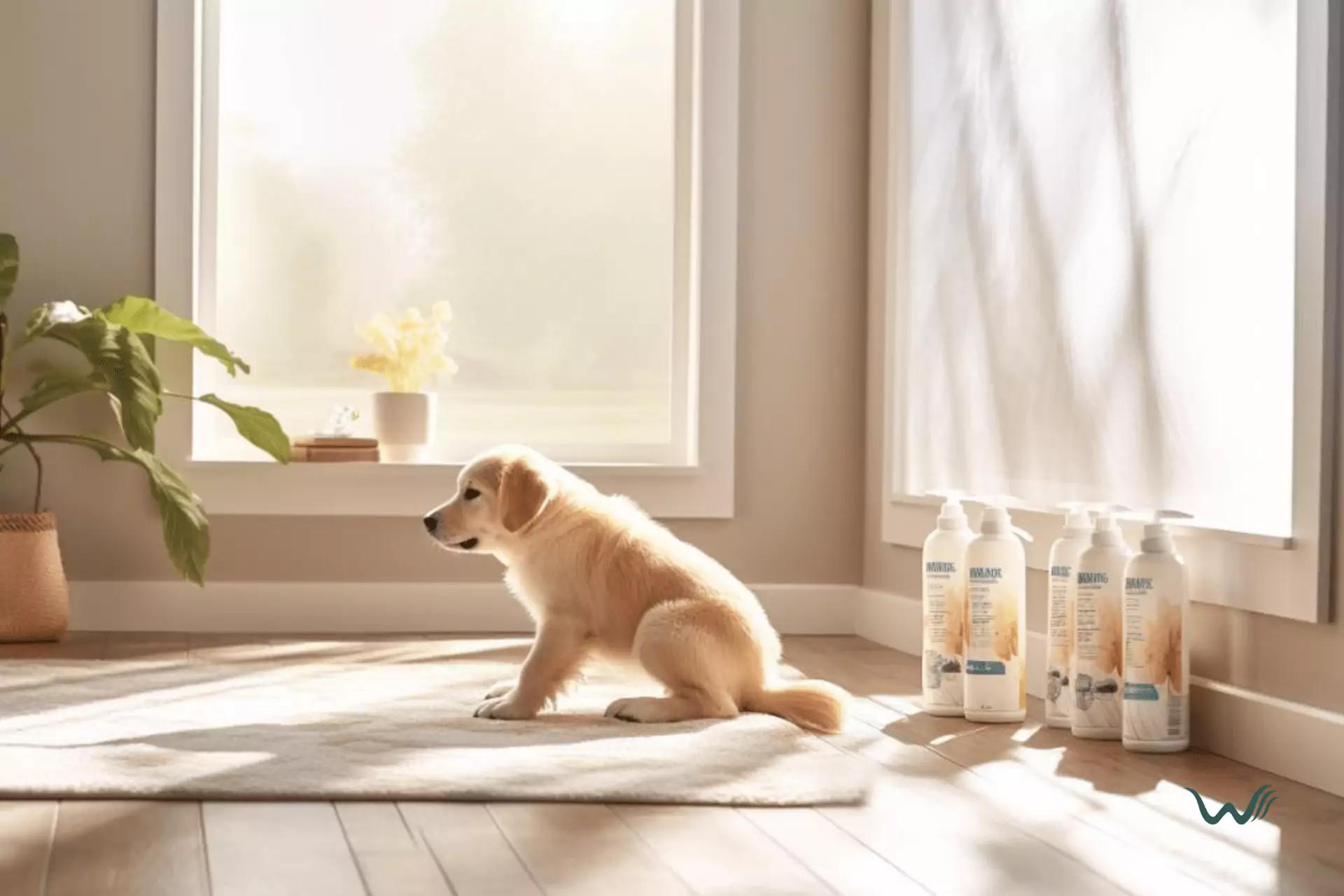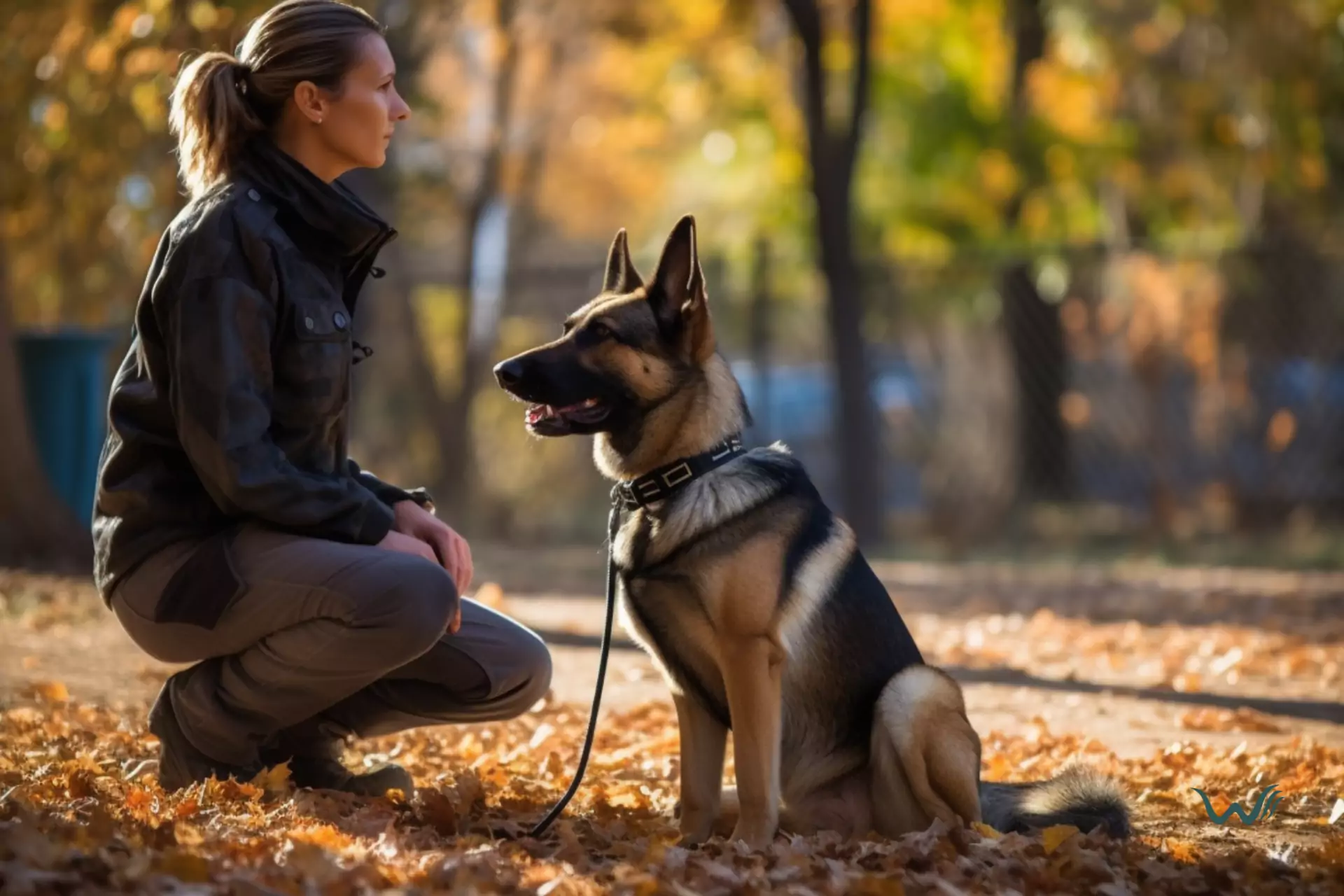

Avoiding Common Puppy Housebreaking Mistakes: Tips For Owners
by Tayyaba Amir
Last updated: April 8, 2024
Verified and Approved by:
Angela Morris,
MSW, LCSW
Fact Checked

Are you tired of constantly cleaning up messes in your home? Do you dream of having a well-behaved, housebroken puppy? Look no further! In this article, we will guide you through the process of avoiding common puppy housebreaking mistakes and provide you with valuable tips to help you become a successful and confident puppy owner.
Imagine a life where you no longer have to worry about your floors being soiled or your furniture being chewed on. By implementing the right strategies and techniques, you can establish a consistent routine, properly supervise your puppy, and use positive reinforcement training to teach them where and when to do their business.
We understand that owning a puppy can be challenging, but with our expert advice, you will be well on your way to a clean and harmonious home. So, let’s dive in and discover the secrets to successful puppy housebreaking!
Key Takeaways
- Establish a consistent routine for the puppy, including taking them out first thing in the morning, after meals, naps, and playtime.
- Supervise the puppy closely to prevent accidents and be proactive in recognizing signs that the puppy needs to go out.
- Use positive reinforcement techniques, such as treats, verbal praise, and affection, to reward and reinforce good behavior.
- Avoid punishing the puppy for accidents, instead calmly clean up and continue with the routine, while also interrupting the puppy if caught in the act and taking them outside to their designated potty area.
Establishing a Consistent Routine
To avoid common puppy housebreaking mistakes, it’s important to establish a consistent routine for your furry friend. Dogs thrive on structure and routine, so having a set schedule will help them understand when it’s time to go outside and do their business.
Start by taking your puppy out first thing in the morning, and then again after meals, naps, and playtime. Make sure to take them to the same spot every time so they can associate that area with going potty. Consistency is key here, so try to stick to the same times every day and be patient with your puppy as they learn the routine.
In addition to establishing a routine, it’s also important to be proactive and anticipate your puppy’s needs. Pay attention to their behavior and learn to recognize the signs that they need to go out, such as sniffing the ground, circling, or whining. When you see these signs, take them outside immediately.
If accidents do happen inside the house, never punish your puppy. Instead, calmly clean up the mess and continue with the routine. Punishing them will only confuse and scare them, making the housebreaking process more difficult. Remember, patience and consistency are key when it comes to housebreaking your puppy, so stay positive and keep up with the routine.
Properly Supervising Your Puppy
Properly supervising your puppy is essential for successful housebreaking. When you bring your new puppy home, it’s important to keep a close eye on them at all times. This means being vigilant and attentive to their behavior and needs. By doing so, you can prevent accidents from happening and ensure that your puppy understands where they should and should not go to the bathroom.
One way to effectively supervise your puppy is to establish a designated potty area. This can be a specific spot in your yard or a pee pad indoors. By consistently taking your puppy to this area, they will learn to associate it with going to the bathroom. Additionally, you can use a verbal cue, such as “go potty,” to further reinforce this association.
To help you visualize the importance of proper supervision, here’s a table that shows the difference between supervised and unsupervised time for your puppy:
| Supervised Time | Unsupervised Time |
|---|---|
| You are actively monitoring your puppy’s behavior and can intervene if they show signs of needing to go potty. | Your puppy is left alone or unsupervised, increasing the likelihood of accidents. |
| You can redirect your puppy to the designated potty area if they start sniffing or circling. | Your puppy may wander off and find a place to relieve themselves indoors. |
| You are able to reward and praise your puppy immediately after they go potty in the designated area, reinforcing their good behavior. | Your puppy may eliminate in the wrong place without any correction or positive reinforcement. |
Using Positive Reinforcement Training Techniques
Get your puppy on the right track by using positive reinforcement training techniques. Positive reinforcement involves rewarding your puppy for good behavior rather than punishing them for bad behavior. This approach helps to build a strong bond between you and your puppy and encourages them to repeat the desired behavior.
When your puppy does something right, such as going to the bathroom outside or sitting when asked, praise them enthusiastically and give them a small treat. This positive reinforcement will let them know that they’re doing the right thing, and they’ll be more likely to continue behaving in that way.
In addition to treats, you can also use verbal praise and affection to reinforce good behavior. When your puppy follows a command or does something you like, use a happy and upbeat tone of voice to let them know they’ve done well. You can also give them a pat on the head or a belly rub to show your approval. This positive reinforcement will make your puppy feel loved and appreciated, which will motivate them to keep up the good work.
Addressing Accidents Effectively
When accidents happen, don’t panic – instead, focus on calmly addressing the issue and guiding your puppy towards proper housebreaking habits. It’s important to remember that accidents are a normal part of the housebreaking process, especially with young puppies who are still learning. Reacting with anger or frustration will only confuse your puppy and hinder their progress. Instead, take a deep breath and approach the situation with patience and understanding.
Start by immediately interrupting your puppy if you catch them in the act of having an accident. Clap your hands or make a loud noise to startle them, then quickly and calmly take them outside to their designated potty area. This helps them associate going potty with being outside and reinforces the idea that indoors is not the appropriate place to relieve themselves. Avoid scolding or punishing your puppy for accidents, as this can create anxiety and fear around the housebreaking process.
After the accident has been cleaned up, thoroughly clean the area with an enzymatic cleaner to remove any lingering scent that may attract your puppy to go potty there again. Keep a close eye on your puppy and take them outside frequently, especially after meals, naps, and playtime. Praise and reward them when they go potty outside to reinforce the desired behavior.
Seeking Professional Help When Needed
Seeking professional help can be important for owners who are struggling with their puppy’s housebreaking. Sometimes, despite our best efforts, accidents can continue to happen and it can feel like an overwhelming task to train your puppy on your own.
That’s where a professional dog trainer or behaviorist can come in and provide valuable guidance and support. A professional can assess your puppy’s specific needs and create a customized training plan to address any housebreaking challenges. They can help you understand the underlying reasons behind your puppy’s accidents and provide strategies to prevent them in the future.
Additionally, they can teach you effective techniques for positive reinforcement and reward-based training, which can be instrumental in housebreaking success. By seeking professional help, you are not only getting expert advice and guidance, but you are also investing in your puppy’s well-being and future. Remember, it’s okay to ask for help when you need it.
A professional can provide the necessary tools and knowledge to help you overcome any housebreaking obstacles and create a harmonious living environment for both you and your furry friend. So, don’t hesitate to reach out and seek professional assistance if you’re struggling with your puppy’s housebreaking. You and your puppy both deserve a happy and accident-free home.
Frequently Asked Questions
How do I prevent my puppy from chewing on furniture and other household items?
To prevent your puppy from chewing on furniture and household items, provide them with plenty of appropriate chew toys and supervise them closely. Redirect their attention whenever they start chewing on something they shouldn’t.
Should I punish my puppy for having accidents inside the house?
No, punishing your puppy for accidents inside the house is not effective. Instead, focus on positive reinforcement and consistent training. For example, reward your puppy with treats and praise when they go to the bathroom outside.
What should I do if my puppy refuses to go outside to eliminate?
If your puppy refuses to go outside to eliminate, be patient and persistent. Take them outside regularly, praise them when they do eliminate, and create a positive association with going outside. Consistency is key!
How long does it usually take for a puppy to be fully housebroken?
Housebreaking a puppy can take anywhere from a few weeks to several months. Consistency, patience, and positive reinforcement are key. Remember, every pup is unique, so stay committed to the process and soon you’ll be celebrating success!
Can I use potty pads or artificial grass for housebreaking my puppy?
Yes, you can use potty pads or artificial grass to housebreak your puppy. They provide a designated area for your pup to go, making clean-up easier. Just remember to gradually transition them to outdoor potty training.
Certify Your Emotional Support Animal Today

Why You Can Rely on Us?
At Wellness Wag, we believe your pet deserves care rooted in both science and compassion. Each article is carefully researched, written in clear language for pet owners, and then reviewed by qualified professionals to ensure the information is evidence-based, current, and practical for real-life care. Our goal is to help you feel confident in making informed decisions about your pet’s health and well-being.
Reviewed by
Angela Morris, MSW, LCSW
Angela is a licensed clinical social worker with 20 years of experience in patient advocacy and community mental health. She has assisted numerous clients with ESA evaluations and brings a deep understanding of disability accommodations, ensuring that all information is accurate, supportive, and practical.

Written by :
Tayyaba Amir
Last Updated :
April 8, 2024










